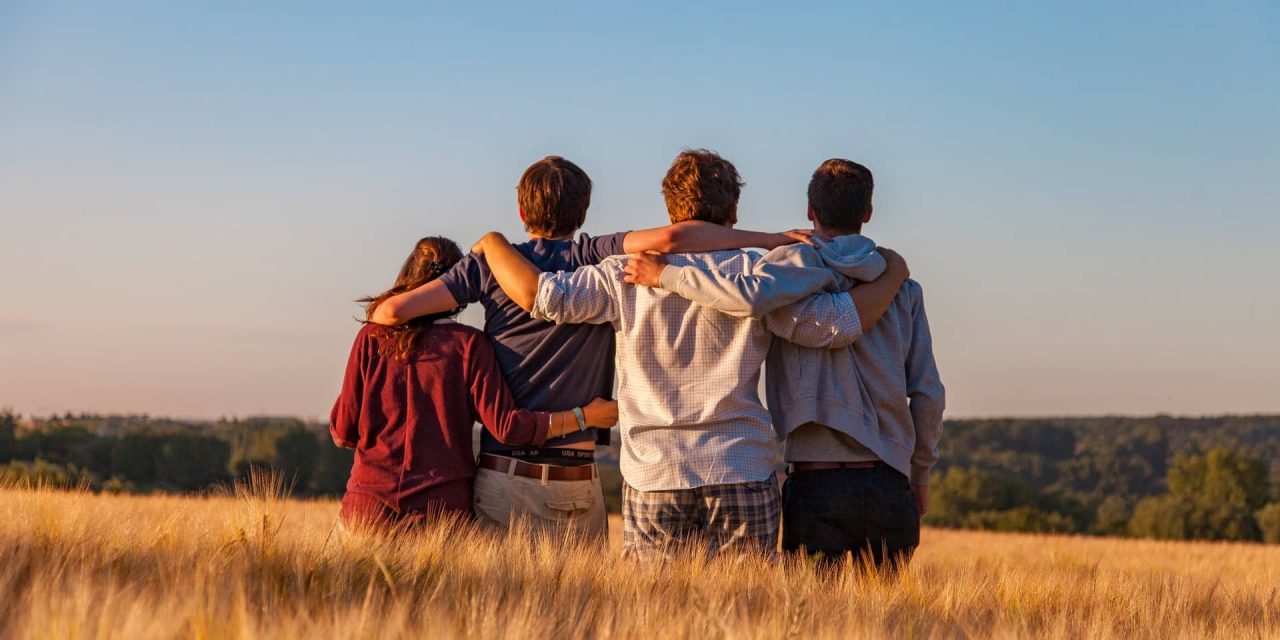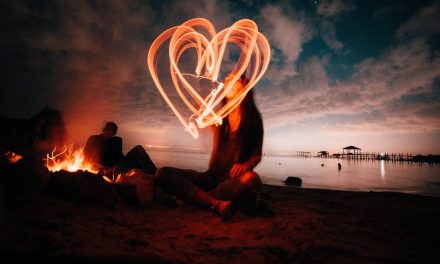In this guest article, wellbeing and development coach Thomas Lai shares his journey about discovering a sense of identity and belonging.
Estimated reading time: 9 minutes
What does it mean to belong? Is our sense of belonging tied to a specific place, particular people, and outer conditions? The sense of belonging is one of our basic human needs. It helps us orient each other in an ever-changing environment. Belonging offers us a secure foundation to develop our capacity for love, self-expression, understanding, and relating to others. It also helps give us a sense of purpose.
In many cultures, belonging means being more or less like everyone else, sharing the same values, views, and attitudes. Even in cultures that celebrate individualism, there is a tendency to align ourselves with people who are most similar to us. But is there more to belonging than defining us and them?
In this article, I am going to share my journey of finding a sense of belonging in the world. I will also share some strategies I learned that helped me along the way.
Here’s What You’ll Learn
Identity and Belonging
My struggle with belonging has always been tied to my struggle with identity. Over time, I began to see my identity as a system made up of different aspects. I’m going to present five aspects of my identity system: cultural, social, psychological, gender and sexuality. These aspects intersect with one another. Getting clarity on each one helped me better understand myself and my relation to the world.
Cultural Identity
One of my earliest challenges is related to cultural identity. Growing up in Canada as an immigrant, the Western values I had embraced conflicted with the traditional East-Asian values held by my family. To adapt to both worlds, I created two personas: the ‘outside home me’ and the ‘at home me’. I associated my ‘outside home me’ as the real me and the ‘at home me’ to be the inhibited version of myself. Unfortunately, the split I had created left me feeling estranged from my heritage and my family.
Social Identity
I’ve always been a social nomad. I would rarely stay in one social group for very long. Like an anthropologist, I was curious about different types of people, but I never saw myself as a committed member. Somehow being a visitor just stopping by felt natural to me. I found change stimulating and being free to roam allowed me to expand and evolve as a person. The downside was that moving around from one group to another made it difficult for me to maintain close and meaningful relationships.
Psychological Identity
Before I knew about high-sensitivity, I learned that I was an Introverted, Intuitive, Feeling and Judging type (INFJ) – supposedly the rarest personality type according to the Myers Briggs personality assessment. Understanding my typology and psychological traits helped me understand myself better and validated what I had experienced in my life. But getting too attached to these psychological profiles also reinforced my sense of alienation.
Gender Identity
As a quiet, meek, and physically frail boy, I never fit into the masculine stereotype. I received many negative comments about my appearance and behavioral traits as I was growing up. Important people in my life would say things to me like: “you’re too skinny” or “you need to deepen your voice and sound more like a man.” Such comments damaged my self-esteem as a young man and their effects continued to impact me as an adult. This also had a great impact on my sense of belonging.
Sexual Identity
Growing up in the 90s, I was fortunate to have access to online communities where other LGBT people connected to share their experiences. At the time, however, we lacked the language to describe the variations of our experiences. So, as someone who currently identifies as gay, gray-ace, and being on the aromantic spectrum, I had a difficult time finding my place in the ‘LGBT’ (pre-LGBTQIA) community.
If you’d like to read more about sexual identity, make sure to check out the book ‘The ABC’s of LGBT+’.
The Consequences Of Not Knowing How And Where I Belong
Although the identity-based challenges I presented are each distinct, they also influence each other as I engage in the world. As a result of the co-mingling of various identity challenges, I experienced the following consequences in my life.
Lacking Emotional Support
Since I struggled to find my place in different communities (Asian, creative, LGBT and spiritual), I found myself often without emotional and social support. While I took pride in being a lone-wolf type, it also meant that I had to really take care of myself. Over time, this fierce independence also made me avoid asking others for help when I needed it. The consequence: I placed a lot of stress on myself which created more overwhelm in my life.
Living In Fear
The more I noticed how I was different, the more self-conscious I became. The harder I tried to fit in to develop a sense of belonging, the more embarrassed I felt when the results didn’t turn out well. Sometimes the shame is self-inflicted. Other times, other people’s reactions and insensitivity would trigger my shame. In time, I associated social interaction as a high-risk activity that is best avoided. Life became a fearful experience in which anything during the day could trigger a deep sense of shame.
Disconnecting From The Physical World
To help myself deal with the confusion surrounding belonging and identity, I would often retreat into my inner world of concepts and ideas. Living in my head led me to ruminate a lot which often exacerbated the emotional turmoil. It also disconnected me from my body – I experienced the world as a floating head that dragged a wispy body around. Living outside my body prevented me from being in touch with my own emotional experience as well as my connection with the earth.
Lacking Long-Standing Relationships
Seeing myself as an ephemeral cloud that no one can grasp kept me from forming long-term relationships. Part of me wanted to maintain my independence and freedom, and yet there was a part of me that wanted a sense of closeness and intimacy with others. Often, this intimate bond forms over time between people. And since I was a social nomad, I ended up with many underdeveloped short-term relationships that could not fulfill that deeper need.
Missing Out On Opportunities
Being an introverted highly sensitive man meant I would sometimes lose out on life and career opportunities. I would be perceived by others as being a ‘beta male’, someone who is less assertive or lacking drive in a capitalist society. Unable to resonate with many of the things our society values – such as money, sex, and power – I began to wonder if perhaps I was broken or lacked personal drive.
How I Managed To Develop A Sense Of Belonging & Identity
I can’t say that I’ve completely eradicated these challenges in my life. However, through years of inner work, I’m now at a place where I know and feel a bigger sense of belonging in the world. For me, it was important to realize that this is a life-long journey towards wholeness or individuation. Here are some strategies I learned to help me recognize that I belong.
Embracing Multidimensionality
Instead of trying to fit into simplistic models, I tried to acknowledge that everyone is multidimensional. I am many things that overlap and intersect to create the unique expression of life that I am. I became more curious and began to learn more about my background and other cultures. This helped me to reconnect with my heritage, various communities, and all the diversity that exists on this planet.
Recognizing Commonalities
Instead of just noticing what set me apart from others, I now try to also acknowledge where we share commonalities. Everyone is looking to be accepted and understood. And we’re all doing our very best to make life work in a world that is sometimes unpredictable. Realizing the ways we are the same helped me be more compassionate towards myself and others.
Celebrating Personal Strengths
Focusing on my strengths rather than weaknesses has been particularly helpful. I’ve harnessed my sensitivity to create expressive works of art, tune in to others on a deeper level, draw subtle connections, and sense the unseen patterns that play out in the world. These are gifts that I can further develop to benefit society. When I honor my strengths and nurture my interests, I feel empowered to seize opportunities that align with my values.
Cultivating A Sense Of Embodiment
Through embodiment practices, particularly The Realization Process developed by Dr. Judith Blackstone, I am learning to inhabit my body more while being in the world. By inhabiting my body, I feel more grounded and fuller within myself. It gives me a sense of stability, which helps keep me from being easily blown away like a paper doll. By developing a better relationship with my body, I’ve also gained insights into the ways I neglect parts of emotional experience.
Being Fully Present With Other People
When I meet a new group of people, I try to ask myself: what does this relationship invite me to share with them in this present moment? Maybe someday we will move apart, and that’s okay. What’s important is that I commit to being present with who is in front of me so we can together explore the full potentiality of our interaction. By doing so, I find myself building more sustaining relationships over time.
Coming Into Contact With The Numinous
I’ve recorded dreams, journaled, and practiced mindfulness and meditation for many years. All this inner work gave me greater insight into my ego self and my true nature. Attending meditation retreats also helped me connect with others who were often also highly sensitive, introverted, and sometimes even queer. My spiritual practice helps me come into greater contact with the deepest part of me – that which is unchanging and ever-present in all of us.
Finding Myself In The Bigger Whole
In conclusion, I finally found a sense of belonging not by fixating on a specific place or group. Rather, by seeing myself as part of a diverse global community, I feel interconnected with the human condition that we all share. And by having an ongoing relationship with my inner self and body, I found a sense of home within myself. In his book At Home in the World, psychoanalyst John Hill states eloquently: “So rather than a stable state, being at home in the world embodies a process, a dialogue between self and world, the inner and outer, the subjective and the objective.” I hope the insights I’ve gained will also help you uncover a true sense of belonging.






